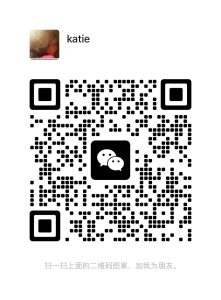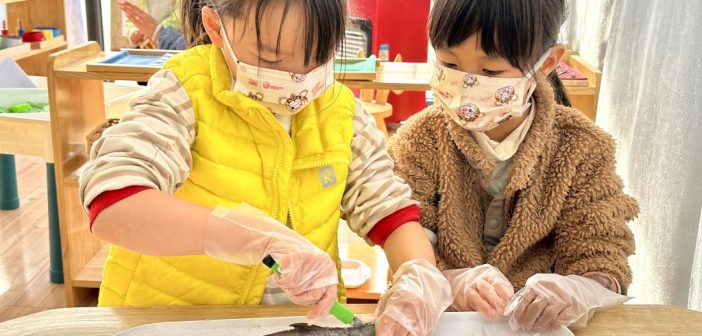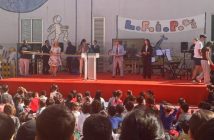When first-time parent Katie Chiu was looking for a suitable kindergarten for her daughter Jana at age 3, she went from top Beijing choices such as Western Academy of Beijing, Mammolina, and Lycée Français International de Pékin, all the way to Denmark, having heard about how the Danish education system is one of the best in the world for producing happy, fulfilled children.

Her search led to her discovery of Maria Montessori’s famed method, and Chiu decided to undergo the rigorous training to become certified at the Association Montessori Internationale (AMI). Now, her search for the ideal school for her now 6-year-old daughter is finally over as she partners with AISB-Hope International School to pioneer their Montessori Elementary program.

Any involved parent would definitely have heard the term “Montessori” tossed around most kindergartens and early childhood education (ECE) centers by the time they start looking into schools. The education trend is so popular that terms such as “Money-ssori” and “Monte-something” have sprung up in response to poor, profit-centric imitations of the education system, which have particularly permeated China’s ECE scene – step into any kindergarten and you’ll find an open classroom with kids of varying ages playing independently with wooden Monte-looking educational toys. Superficially, the scene might fulfil a layman’s vision of what a Montessori classroom looks like, but as I learned, there is so much more to Montessori.

The recent Open Day at AISB-Hope truly, pardon the pun, opened my eyes to the magic of true Montessori. Theory-aside, I saw photos and learned about how the pioneer group of fresh Montessori gradeschoolers cut open a dead fish to try to establish its cause of death. This exploration led to a discussion with the kids about forensic science and eventually brought the kids to the wet market where they procured a dead chicken to cut that open. Inside the chicken, they found an egg, which led to the big talk about where chicks come from and the kids ended up hatching chicken eggs! This child-led project took place over 2 months and happened organically through each small discovery. It was the ideal Montessori lesson – initiated by the kids’ genuine curiosity and guided and supported by a patient and knowledgeable teacher.


In just the two weeks since this informal Montessori class started at AISB-Hope, there were already several other exemplary Montessori classes that have been documented. But the truth is, Montessori, like any other education philosophy, is so dependent on the strength of their executors, in this case the teachers. I can attest to the passion and authenticity of the ones at AISB-Hope – Katie Chiu and Penny Wei (formerly with Mammolina) – both of whom are AMI-trained and AMS-certified respectively. They are currently accepting applications to start Montessori Elementary come August. If accepted, know that you and your child will be subject to an interview to assess your suitability to join the class, as is common practice in true Montessori fashion since parental involvement is critical to its basic philosophy.

Scan the QR code above to chat with Katie about the Montessori Elementary program, or add Elsie from AISB (QR code below) to learn more about their admissions.

KEEP READING: Expat Parents Reveal: Can Ayis Support a Montessori Child?
Images: Courtesy of Katie Chiu
Le Lycée Français International Charles de Gaulle de Pékin



